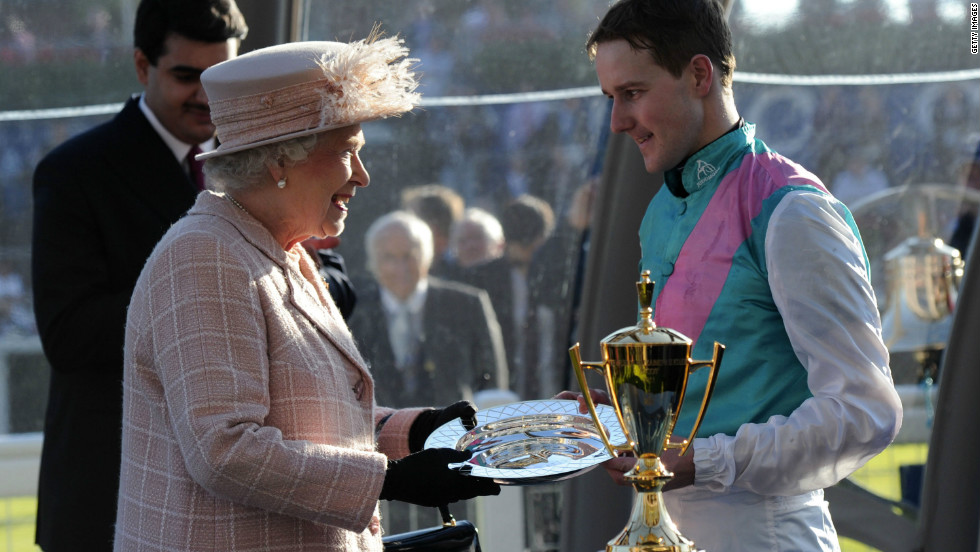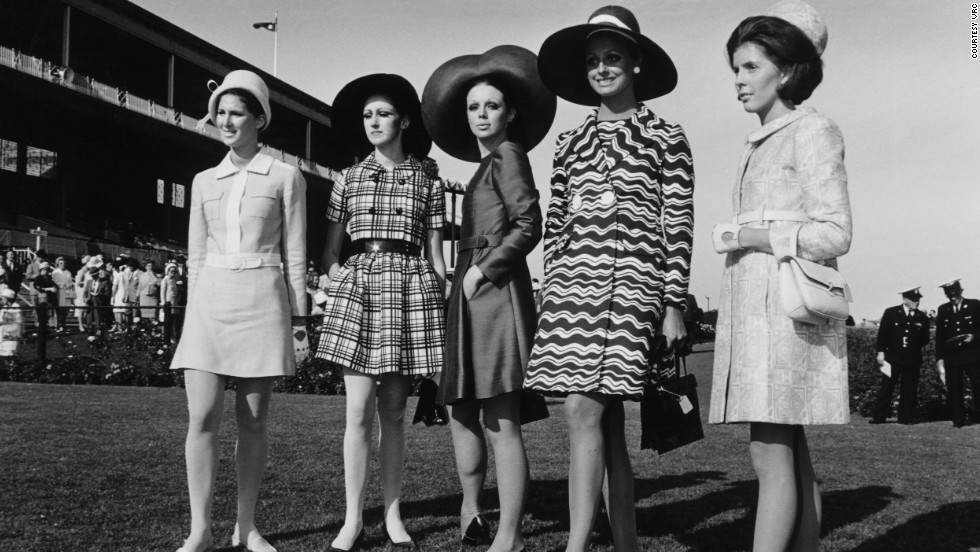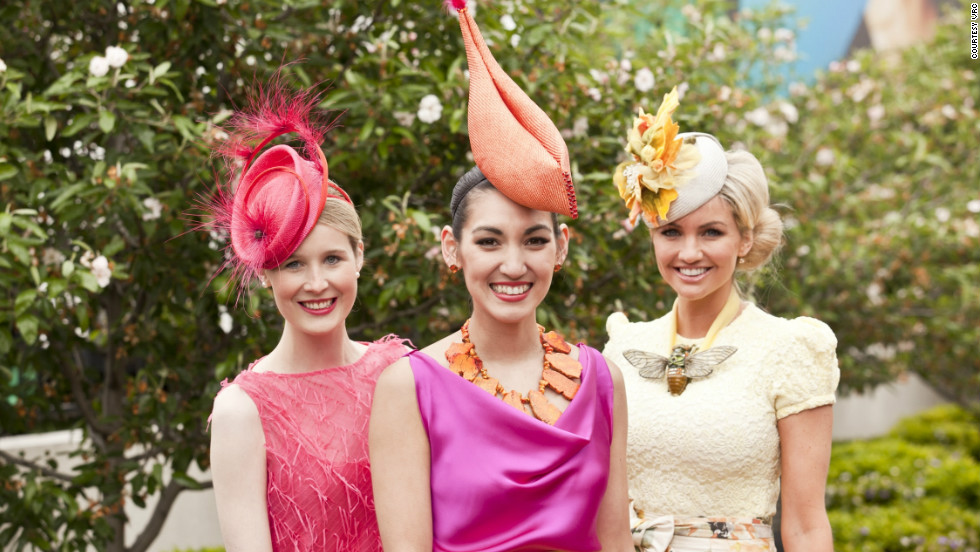Story highlights
- 2012 is a big year in horse racing as 6 million people head to the track
- Rise of celebrity horses Frankel and Black Caviar helps create buzz
- Female jockey Chantal Sutherland in naked photoshoot before retiring
- Biggest challenge is British weather, with 119 races canceled
A buzz ripples through the packed stadium as word quickly spreads: "He's here."
The jostling crowd surges forward, camera phones held high to catch a glimpse of the superstar flanked by a dense entourage.
But it's not an A-list actor or musician throwing the fans into a frenzy. Instead, a four-year-old horse called Frankel is about to make history by winning his 14th -- and final -- consecutive race.
A sold-out crowd of 32,500 people watched Frankel win Champions Day at Ascot in October -- the highest number for an autumn flat racing event in Britain.
It's a testament to the popularity of the celebrity colt who, much like Madonna, Prince or Beyonce, needs no last name. But it's also an indication of just how far horse racing has come in 2012.
Changing perceptions
It's the second biggest spectator sport in Britain after football, with around 6 million people heading to the track every year.
But the pomp and pageantry of racing -- think silly hats, freeflowing champagne and manicured gardens -- means that the general public has long viewed it as a fun day out, rather than a competitive sport.
This year however, racing attracted a new audience who knew the names of horses, recognized industry heavyweights and understood the importance of big competitions.
"Probably the most amazing moment of the year was Frankel winning the Champion Stakes. You had 32,000 people all on their feet, cheering him on, it was just the most emotional moment," Simon Bazalgette, chief executive of The Jockey Club, said of the horse's last race.
"It's a bit of an eccentric world, horse racing. But once you understand the theater of it, once you know the big names, it becomes so much more enjoyable."
Rise of the celebrity horse
A lot of the hype was due to celebrity horses such as Frankel and Australia's Black Caviar, who remains unbeaten in 22 consecutive races and even appeared on the front cover of Vogue.
These were champions of a caliber rarely seen in one generation, let alone competing at the peaks of their careers in the same year.
In a new digital age, their fame was carefully cultivated. Marketing teams set up Twitter accounts, Facebook profiles, and pedaled merchandise online.
And it seemed to work. Attendance at races starring Frankel were up 20% on last year.
Similarly, a small army of Black Caviar fans -- draped in the horse's native Australian flag or salmon pink silks -- cheered on the mare to victory at the Queen's Diamond Jubilee Stakes at Royal Ascot in June. However, the overall figure of 280,000 for all five days was down 14,000 from last year.
Meanwhile, a record 130,000 punters attended the prestigious Epsom Derby in July, which launched Queen Elizabeth's official jubilee celebrations, making it the largest sports crowd in Britain in 2012.
More people were also watching horse racing on TV, with 11 million tuning in to Britain's biggest competition, The Grand National -- up 2 million on last year.
Dettori's shame
However, it wasn't a flawless year for racing. The sport's poster boy, Italian jockey Frankie Dettori, was given a six-month ban earlier this month after failing a drugs test in France.
The three-time champion, who earlier announced the end of his long tenure with the Godolphin stable, said it was not a performance-enhancing substance.
"He's admitted it was a moment of madness," Bazalgette said. "It's a shame. He's an important face in horse racing."
"When it comes to talking to the media, jockeys are a bit of a challenge. These guys are living and breathing the sport, putting in a huge number of hours. They can be difficult to pin down."
Far better recognized were celebrity owners such as TV entertainers Ant and Dec, actress Judi Dench and Britain's Queen Elizabeth. Frankel's trainer Henry Cecil, who is battling cancer, was also "hugely loved," Bazalgette added.
Ladies' Day
One jockey not shying away from the camera this year was Canadian Chantal Sutherland.
The 36-year-old made history after becoming the first woman to compete in the world's richest horse race, the $10 million Dubai World Cup, in March.
But the model perhaps garnered more attention off the track for her naked photoshoot on a horse in Vanity Fair in June.
Sutherland, who did much to raise the profile of female jockeys in a traditionally male-dominated sport, retired in October. Not just a pretty face, she had more than 900 wins in a career spanning 12 years.
A weighty issue
Sutherland said she was now looking forward to "cutting loose and having a cheeseburger or some pizza."
"Those types of indulgences are not allowed when you constantly have to monitor your weight," she added.
Jockeys are put under enormous pressure to meet miniature weight requirements, with sweat suits, saunas, hot baths and starvation are some of the methods used to keep trim.
But some relief is in sight -- albeit slight -- after the British Horseracing Authority last month raised the minimum weight by two pounds to 8 stone (50 kg), from January next year.
International highlights
Across the Atlantic, the winner of the United States' premier race, the Kentucky Derby, was denied the chance of a Triple Crown after being forced to retire ahead of the Belmont Stakes.
The three-year-old had been seeking to be the first horse in 34 years to win the treble, having triumphed at the 138th Kentucky showpiece in May and then the Preakness Stakes.
Racing authorities also confirmed that the legendary Secretariat set a record time in winning the 1973 Preakness event, ending a controversy that had lasted almost four decades.
In Australia, the Melbourne Cup was won by a home horse for the first time since 2009 as Green Moon headed off a strong field of "international invaders."
France's Prix de l'Arc de Triomphe was won by four-year-old filly Solemia, who denied Japan's Orfevre in his bid to become the first non-European trained victor. Danedream was unable to defend her title due to an outbreak of equine infectious anaemia at the racing yard in the German city of Cologne where she is trained.
Dubai's ruler Sheikh Mohammed celebrated as Mikael Barzalona rode Monterosso to victory in the the emirate's World Cup in April, but the result was somewhat overshadowed by the death of another Godolphin horse, Fox Hunt, in the inaugural Gold Cup held earlier in the meeting.
Weathering the storm
The biggest challenge for the UK racing industry this year? The great British weather -- which forced the cancellation of 119 races up to the start of December.
"After the Diamond Jubilee weekend it didn't stop raining until the end of July," Bazalgette said. "There was a good six weeks when we lost meetings."
Whatever the weather, the outlook looks bright for horse racing in 2013.



















































































































































































